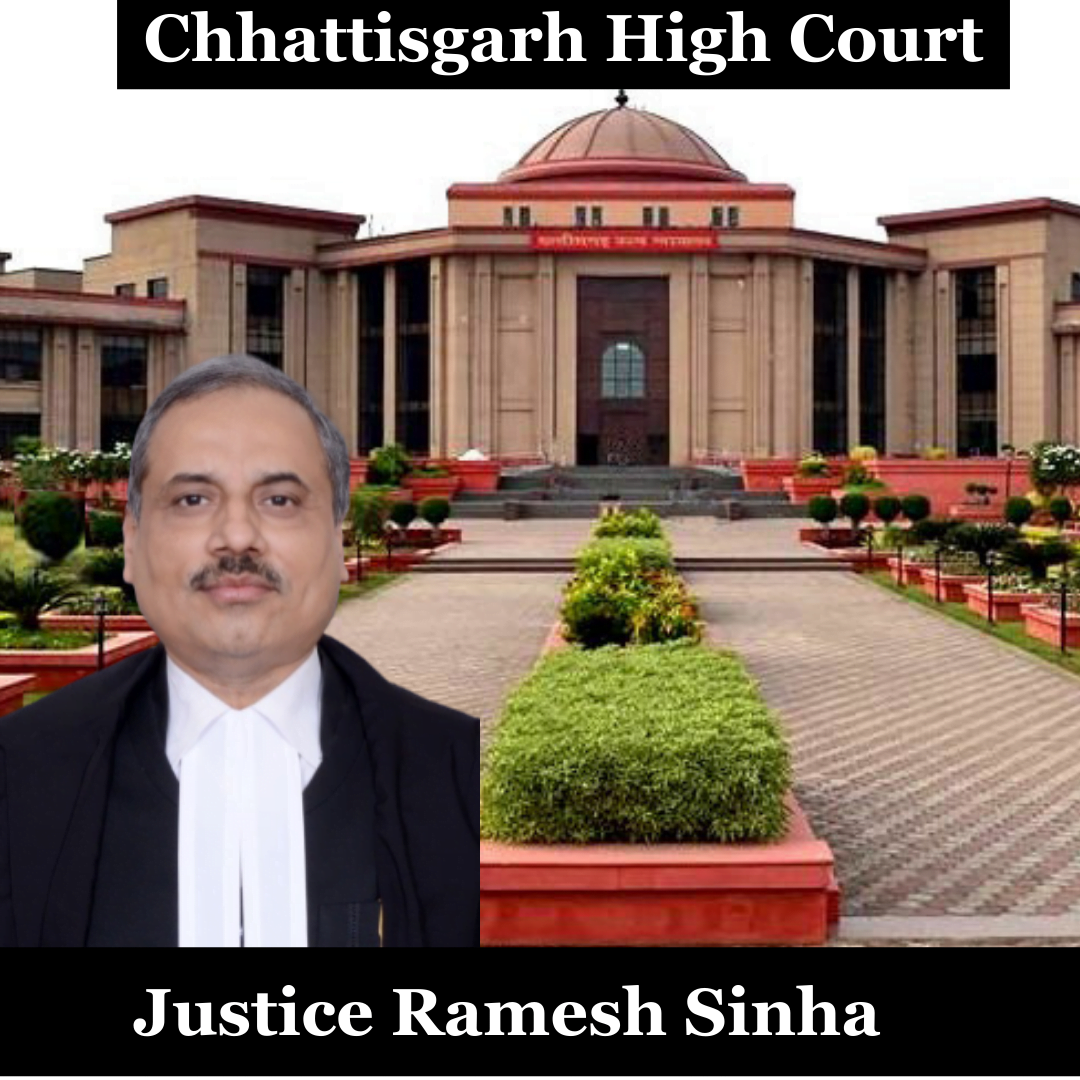In a case where a petition was filed under Section 482 of the Criminal Procedure Code, 1973, to quash the charge-sheet and overturn the order dated 18-09-2017, Justice Ramesh Sinha of the Chhattisgarh High Court stated that the petitioner’s demands to recover the loan amount could not be considered as abetment. The Chief Justice reasoned that anyone lending money would naturally expect it to be repaid. Therefore, the Chhattisgarh High Court acquitted the petitioner of the charges under Section 306 of the Indian Penal Code, 1860 (IPC) and annulled the order dated 18-09-2017.
Chhattisgarh High Court Case Background
A tragic and convoluted series of events unfolded, leading to the petitioner’s entanglement in a legal battle. The central figures in this complex narrative were the deceased’s husband, a government teacher, and the petitioner, who found themselves embroiled in a web of financial mismanagement and dire consequences.
The deceased’s husband, employed as a government teacher, introduced the petitioner to a government scheme known as the Prime Minister Vikas Kaushal Scheme (‘the Scheme’). Under this Scheme, institutions could receive financial benefits amounting to Rs. 10,000 per student. However, to avail these benefits, students were required to deposit Rs. 12,000 upfront. The deceased’s husband, in his role as an intermediary, provided detailed information about the Scheme’s potential benefits to the petitioner.
Motivated by the prospect of these benefits, the petitioner extended financial support by providing a substantial sum of Rs. 10 lakhs to the deceased’s husband through Leela’s Foundation. This Chhattisgarh High Court substantial amount was intended to facilitate the Scheme’s implementation in various institutions, including the petitioner’s own.
Tragically, the deceased’s husband failed to fulfill his responsibilities. He dishonestly withheld the funds, refusing to return the petitioner’s share to the relevant institutions, including the petitioner’s own establishment. When the petitioner, rightfully aggrieved, demanded the repayment of the borrowed amount, the deceased’s husband denied having received any funds from Leela’s Foundation. Moreover, he admitted to not repaying the investors, leaving the petitioner in a precarious financial position.
The situation took a devastating turn when it was discovered that the deceased’s husband’s wife and their three children had ingested a poisonous substance, leaving behind a heart-wrenching suicide note. Although the three children survived the ordeal, the wife tragically succumbed to the poisoning. This profoundly distressing incident prompted the prosecution agency to file a charge-sheet against the petitioner under Section 306 of the Indian Penal Code (IPC), which pertains to abetment of suicide.
The legal ordeal intensified when the Trial Chhattisgarh High Court, on 18th September 2017, framed charges against the petitioner under Section 306 of the IPC, read in conjunction with Section 107 of the IPC. Simultaneously, the petitioner, seeking recourse, initiated legal action by filing an application under Section 138 of the Negotiable Instruments Act, 1881. This application provided substantial evidence, indicating that the deceased’s husband had indeed received funds from the petitioner, further complicating the legal proceedings.
In summary, the petitioner found themselves ensnared in a distressing situation marked by financial deception, tragic loss of life, and legal ramifications. As the case unfolds, it underscores the complex interplay of financial transactions, trust, and the devastating impact of these circumstances on the lives of those involved. The legal system now faces the challenging task of unraveling the intricate layers of this case to deliver justice in the face of such overwhelming tragedy and deception.
Must Read:- Government Of Rajasthan High Court has instructed the to release the Claim

Chhattisgarh High Court Analysis of Case
The Chhattisgarh High Court emphasized the prosecution’s responsibility to prove that the accused had abetted suicide. In this case, there was no evidence suggesting the petitioner’s involvement or encouragement of the deceased’s suicide. The Chhattisgarh High Court referred to the precedent set in Ramesh Kumar v. State of Chhattisgarh (2001) 9 SCC 618, stating that the Trial Court’s decision to charge the petitioner under Section 306 of the IPC was unjustifiable. Even assuming the prosecution’s account was accurate, there was no proof that the petitioner had used coercive methods to recover the loan. Any demands made by the petitioner to retrieve the loan couldn’t be seen as abetment, as it was natural for a lender to seek repayment.
Additionally, the Chhattisgarh High Court noted the absence of any legal action taken by the deceased or her husband in response to alleged unlawful activities by the petitioner. If the petitioner had engaged in illegal activities to reclaim the loan, the deceased or her spouse could have approached a court or filed a complaint with the police. However, no such actions were taken in this case.
Consequently, the Chhattisgarh High Court acquitted the petitioner of the Section 306 IPC charge and annulled the Trial Chhattisgarh High Court order dated 18-09-2017. The decision underscored the lack of evidence linking the petitioner to the tragic incident and affirmed the principle that mere demands for loan repayment do not constitute abetment to suicide.
Must Read:- The J&K High Court, compliance with Section 47(2) of the A&C









Leave a Reply